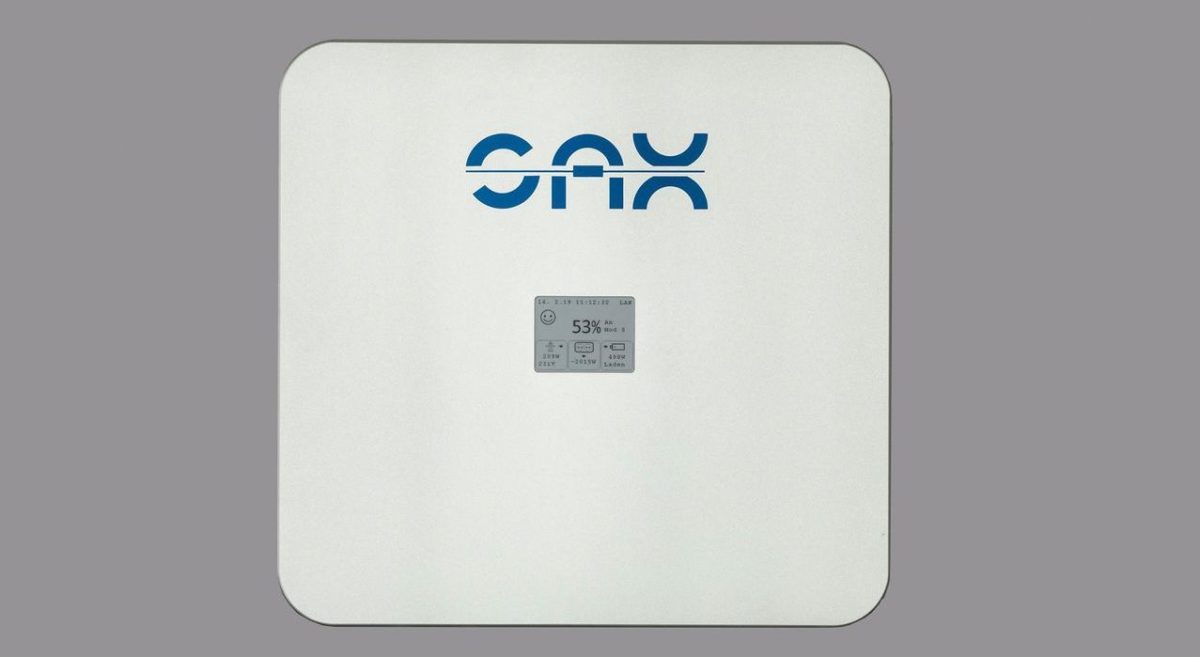From pv magazine International
German start-up Sax Power GmbH is offering a residential AC battery it says works entirely without an inverter and has 50% more capacity and service life than conventional batteries.
According to its specifications, the battery stores direct current and can deliver both alternating current and direct current. The conversion is not carried out by transistors such as IGBTs or MOSFETs, but via the software of the battery management system. By interconnecting with cascaded H-bridges, the cell blocks can be controlled individually. That enables the system to build a sinusoidal curve typical of alternating current from the individual DC voltage values. It also increases efficiency, since the conversion is purely electronic. Sax states the efficiency of its solution is 99%. The option of plugging the battery into a main socket is a further innovation, according to the company.
Sax Power said, in this type of device the current is measured by folding current transformers. That means no cables have to be disconnected in a household network. In addition, a second current measurement of the same type is carried out on the feeding line to the house. The battery then receives the information it needs for optimal use, via wireless communication units.
The manufacturer said some performance can be lost with the plug-in device, which has a nominal power output of 3.7 kW. The standard product, without the plug-in, has an output of 4.6 kW.
The battery comes with lithium iron phosphate cells and the capacity of the basic model is 5.2 kWh but it can be expanded with extra modules to 15.6 kWh. The nominal current is 20 A, or 16 A with the plug-in installation.
The company offers a 10-year guarantee for the device, which weighs 52kg and is said to be easier for installers to mount as they do not have to handle an inverter.
In May, the product received a German Innovation Award and Sax Power said it will be on display in October at the EES storage fair held alongside The Smarter E trade event. The developer said its product has qualified as a finalist for the EES Award at this year’s show.
A price for the product can be found on the Sax Power website. The basic version is listed as costing €5,079. In a version with wireless communication and a better smart meter, the device costs €5,210. It will be sold in series from autumn.
This content is protected by copyright and may not be reused. If you want to cooperate with us and would like to reuse some of our content, please contact: editors@pv-magazine.com.









By submitting this form you agree to pv magazine using your data for the purposes of publishing your comment.
Your personal data will only be disclosed or otherwise transmitted to third parties for the purposes of spam filtering or if this is necessary for technical maintenance of the website. Any other transfer to third parties will not take place unless this is justified on the basis of applicable data protection regulations or if pv magazine is legally obliged to do so.
You may revoke this consent at any time with effect for the future, in which case your personal data will be deleted immediately. Otherwise, your data will be deleted if pv magazine has processed your request or the purpose of data storage is fulfilled.
Further information on data privacy can be found in our Data Protection Policy.